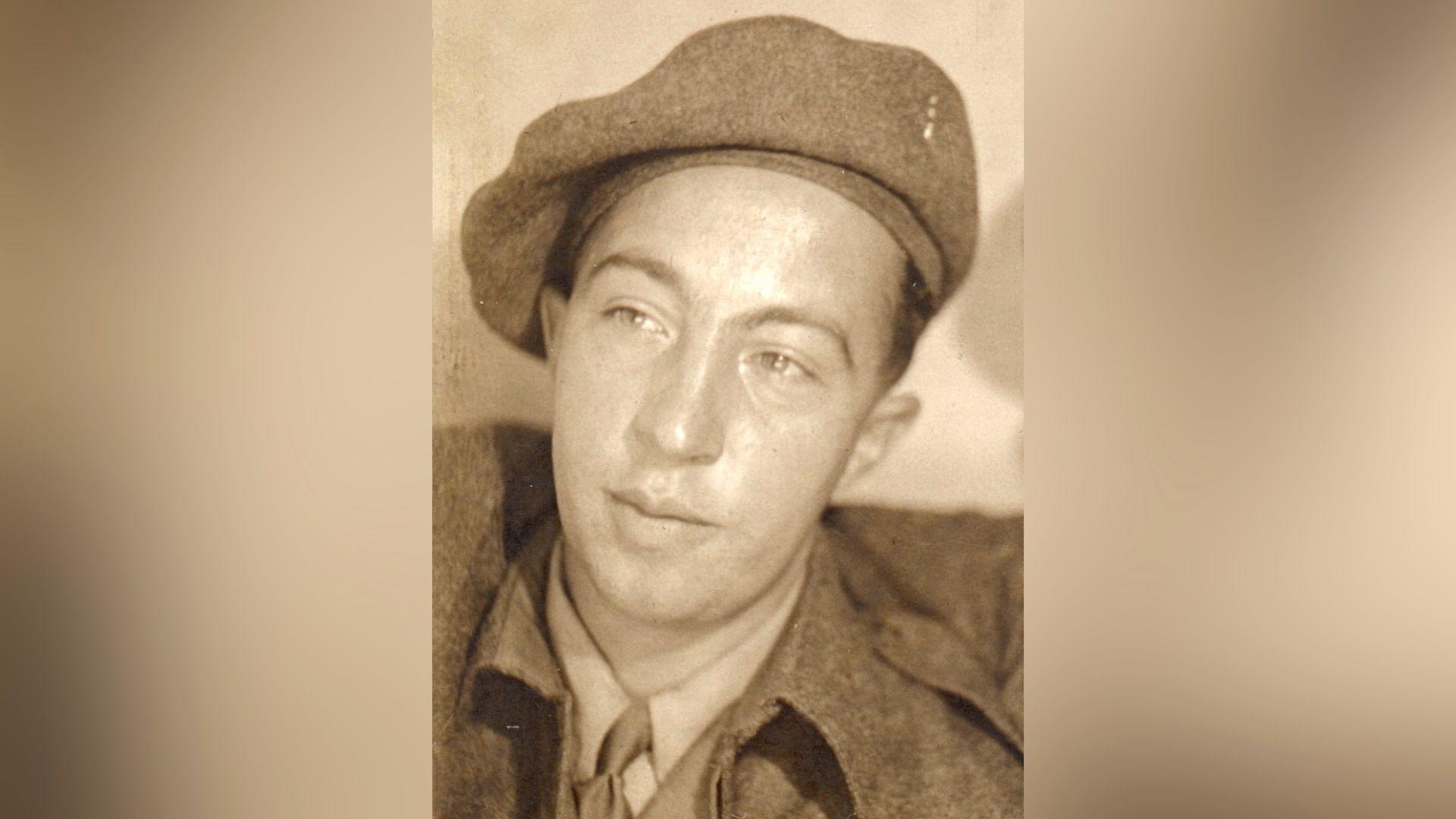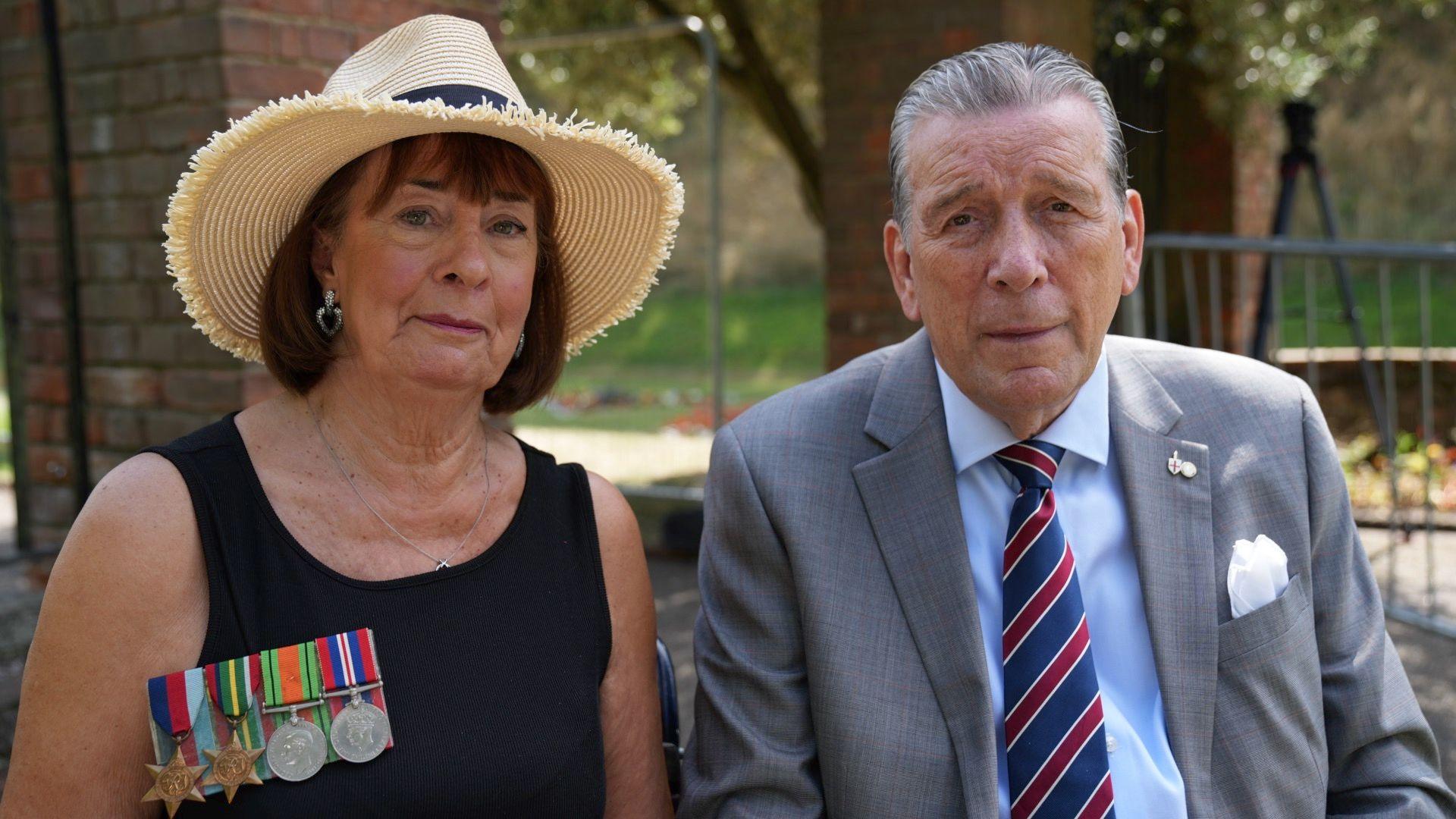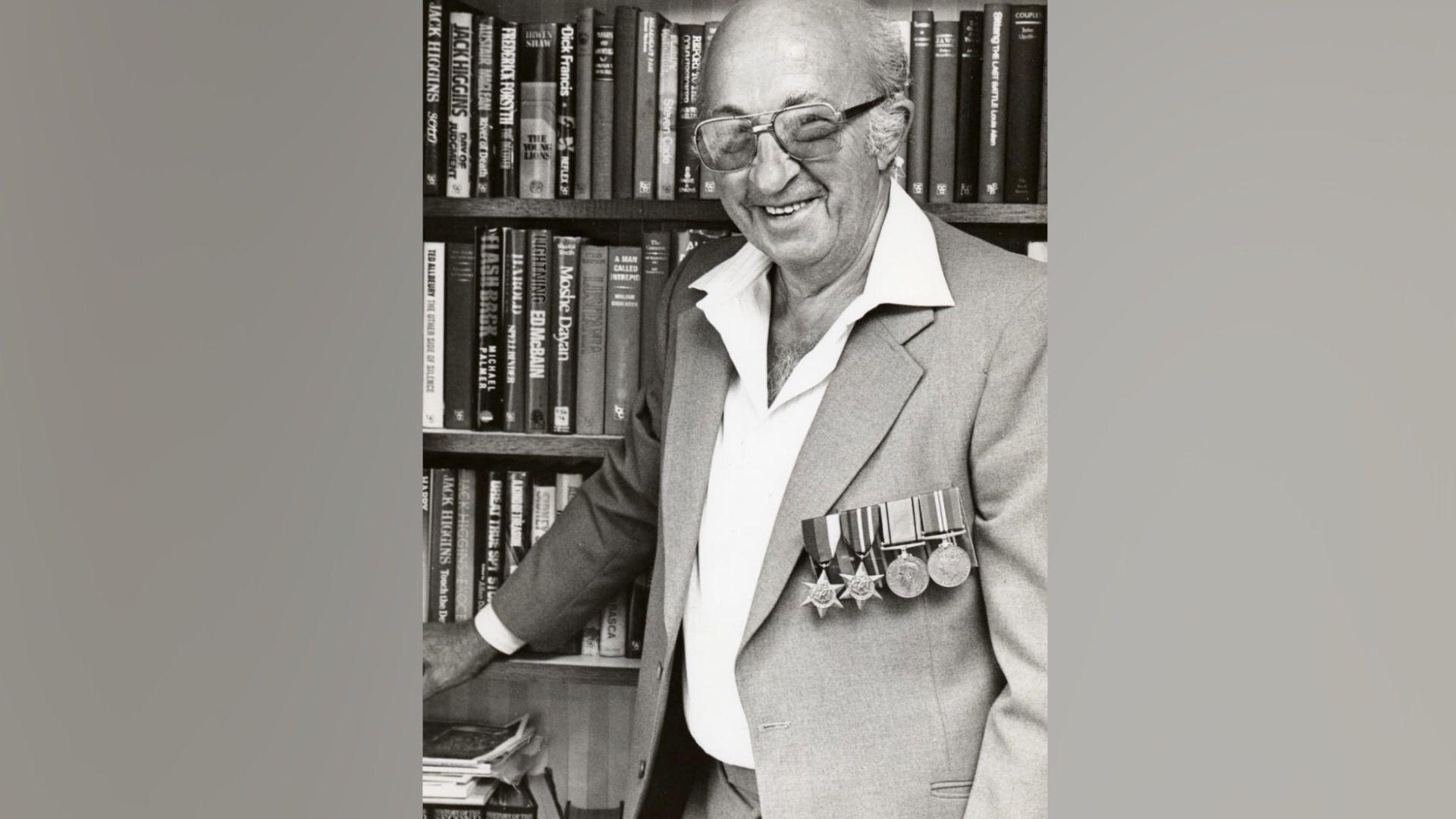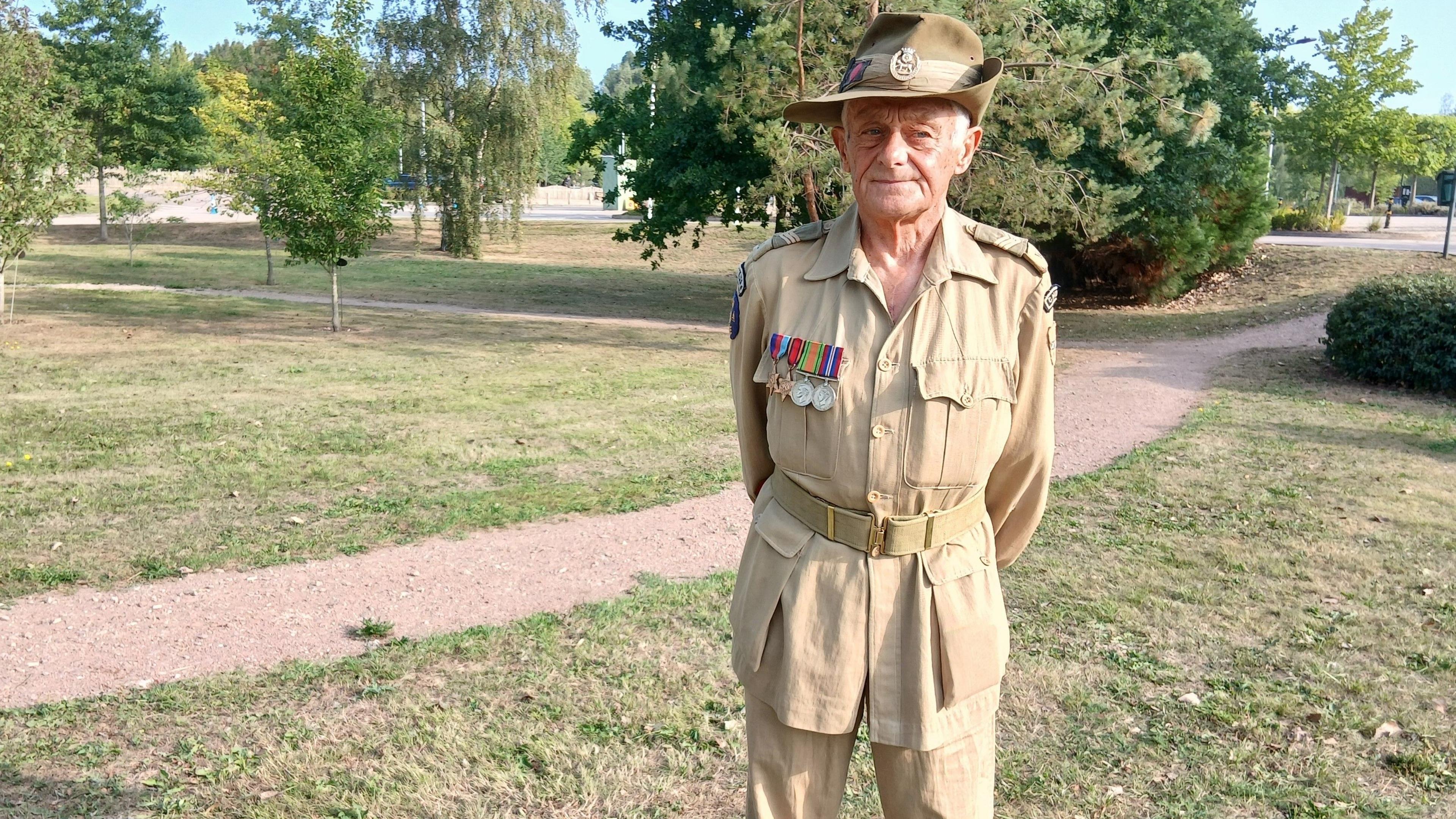WW2 prisoner 'told not to speak' of what happened

Alfonso Garizio rarely spoke of his time as a prisoner of war in the East Asia
- Published
The daughter of a World War Two veteran who spent three years as a prisoner of war (POW) in East Asia said her father rarely spoke about what happened.
Alfonso Antonio Garizio - who served in 1st Battalion Cambridgeshire Regiment - survived working on the railways in Myanmar (formerly known as Burma) and copper mines in Japan.
His daughter Gillian Powell recently laid a wreath on his behalf at Colchester Castle on the 80th anniversary of VJ Day.
"You don't realise until you get older what they went through - it's true, they gave their today for our tomorrow," Ms Powell told the BBC.
The Japanese surrender was formalised on 2 September 1945 in a ceremony on board the USS Missouri in Tokyo Bay.

Gillian Powell - pictured with husband Stephen - said she was "very proud" of her father
Alfonso - who lived in London all of his life and was known to his family and friends as Tone - was captured after the fall of Singapore in 1942.
His family said he was put to work on the infamous Burma-Thailand railway, which would cross more than 260 miles (420km) through mountainous jungle.
It led to the deaths of an estimated 13,000 POWs and 70,000 civilian workers.
He survived working on the Hell Fire Pass section of the railway - which claimed the lives of 90% of those POWs who were made to build it - as well as the bridge over the River Kwai, made famous in the 1957 Oscar-winning film.
He weighed just six stone when the war ended, his family said.
'Horrendous'
"He had a terrible time, like everybody else did," said Ms Powell, whose from Colchester.
"They were told when they got home, 'Don't speak about it', and so they kept it all [in their heads] which didn't do any of them any good."
A skilled chef, Alfonso supplemented the single bowl of rice he was given to eat every day with grubs and leaves from the jungle.
After the Japanese surrender on 15 August 1945, Alfonso and his fellow POWs emerged to find their camp deserted.
"They found all of their Red Cross parcels all locked up in a hut, and their letters and everything else [from home] which were never given to them," said Stephen Powell, Alfonso's son-in-law.
"It was horrendous in that jungle."

Alfonso Garizio, pictured on the 50th anniversary of VJ Day in 1995
Alfonso took several weeks to arrive back in England, travelling across the Pacific to the west coast of the USA before heading over land to New York and eventually to Southampton.
He passed away in 2017, aged 97.
But his family said that although he had suffered physically at the hands of the Japanese during the war, the psychological effects lasted much longer.
"We never had anything in our house that came from Japan, never - until the televisions were made there, and then he didn't have a choice," Ms Powell told the BBC.
On VJ Day on 15 August, she and her husband laid a wreath on Alfonso's behalf at the Burma Star Association memorial in Colchester's Castle Park.
Speaking shortly afterwards, Alfonso's son-in-law said that "they were known as the forgotten army - well, today, they're not".
Get in touch
Do you have a story suggestion for Essex?
Follow Essex news on BBC Sounds, Facebook, external, Instagram, external and X, external.
Related topics
- Published15 August
